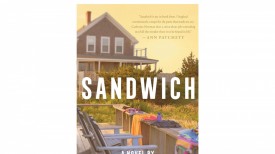‘How to Talk So Kids Will Listen & Listen So Kids Will Talk’ by Adele Faber and Elaine Mazlish Book Review: An Essential Parenting Guide

Discover an essential parenting guide in this review of "How to Talk So Kids Will Listen & Listen So Kids Will Talk" by Adele Faber and Elaine Mazlish.(Photo : Amazon/Adele Faber and Elaine Mazlish)
Meaningful conversations with children can be challenging for a parent. The book "How to Talk So Kids Will Listen & Listen So Kids Will Talk" by Adele Faber and Elaine Mazlish provides many tips on improving relationships with children. Parents and professionals have commended this timeless resource for its polite and practical socializing advice.
Time-Tested Techniques
Faber and Mazlish are known for their smart ways of helping parents and kids communicate better. The book has six parts, each about different skills that can help parents deal with common problems. The authors discuss many things parents face daily, from dealing with their kids' bad feelings to setting strict but kind limits.
One of the best things about the book is how much it stresses understanding and supporting kids' feelings. The writers say a clear link exists between how kids feel and how they act. Parents can create an atmosphere where kids can trust and work together by recognizing and understanding their feelings. This is different from the usual ways of dealing with problems involving punishment and threats, which often make things worse instead of better.
Practical Examples and Real-Life Applications
An article on Medium said that the authors use many real-life examples to make their tips more useful, making the book relatable and helpful. For example, Faber and Mazlish say that pleas should be worded as statements of information instead of demands. This small change in how parents talk to kids can get them to cooperate better without yelling or threatening them.
These techniques are life-changing for parents who have trouble repeatedly making requests and getting angry when ignored. Using these strategies can cut down on fights and improve the mood at home overall. Many parents who read the book said the same thing: the tactics worked and gave them power.
Addressing Strong Emotions and Alternatives to Punishment
Challenged Boys stated that one of the best things about the book is that it helps kids and adults deal with their strong emotions. Reading this book will enable parents to guide children toward healthier handling of their anger, resentment, and melancholy. Having conversations about their feelings will enable children to manage them properly.
Faber and Mazlish also discuss punishment options that teach self-control and responsibility. These techniques teach kids to consider the results of their activities and resolve issues. This method not only helps kids become more independent but also strengthens the bond between parent and child.
Universal Appeal and Accessibility
Parents, teachers, and anyone working with kids can use the book's ideas. The writing style is clear and simple, so people can quickly learn and use the skills in their everyday lives. The tasks at the end of each chapter make it even more useful by encouraging readers to practice the skills and learn them by heart.
Child psychologists and family doctors are among the readers who have praised the book for greatly affecting their personal and professional lives. The writers' skill and experience are shown by how well they can simplify difficult psychological ideas into clear, useful advice.
Final Thoughts
Everyone who wants to improve their interactions with kids should read this book. Its respectful and understanding approach strengthens relationships and improves parenting. This book has helpful tips and tools to help parents deal with stubborn children or the emotional ups and downs of adolescence.
Using the ideas in this book, parents can make their homes more peaceful where kids feel heard and valued. This makes raising self-assured, respectful, and mentally smart people. Everyone who wants to learn how to communicate with children effectively must read this famous book.
RELATED ARTICLE: New Children's Book Encourages Stimming for Self-Expression and Regulation
© 2023 Books & Review All rights reserved.
Popular Now
1
Books to Read After 'Fourth Wing': Top Picks for Fantasy and Romantasy Fans

2
‘The Secret Public’ by Jon Savage Book Review: An Insightful Look Into the LGBTQ Influence

3
Stephanie Regalado's 'If They Only Knew' Column Is Now A Book, Unleashing 60 Anonymous True Stories to Empower Women

4
'No Wire Hangers' Scene That Almost Did Not Happen: New Book Reveals Faye Dunaway's Struggles

5
Rare First Edition of Aphra Behn's Novel 'Oroonoko' Discovered in Kent: A Historic Literary Find

Latest Stories
Book Reviews
‘The Secret Public’ by Jon Savage Book Review: An Insightful Look Into the LGBTQ Influence

Book News
Stephanie Regalado's 'If They Only Knew' Column Is Now A Book, Unleashing 60 Anonymous True Stories to Empower Women

Book News
'No Wire Hangers' Scene That Almost Did Not Happen: New Book Reveals Faye Dunaway's Struggles

Book Reviews
‘The Perfect Couple’ by Elin Hilderbrand Book Review: A Captivating Summer Mystery

Book News
New Book ‘The Franchise’ Reveals Penguins President Kyle Dubas’ ‘Biggest Mistake’ as Maple Leafs GM











